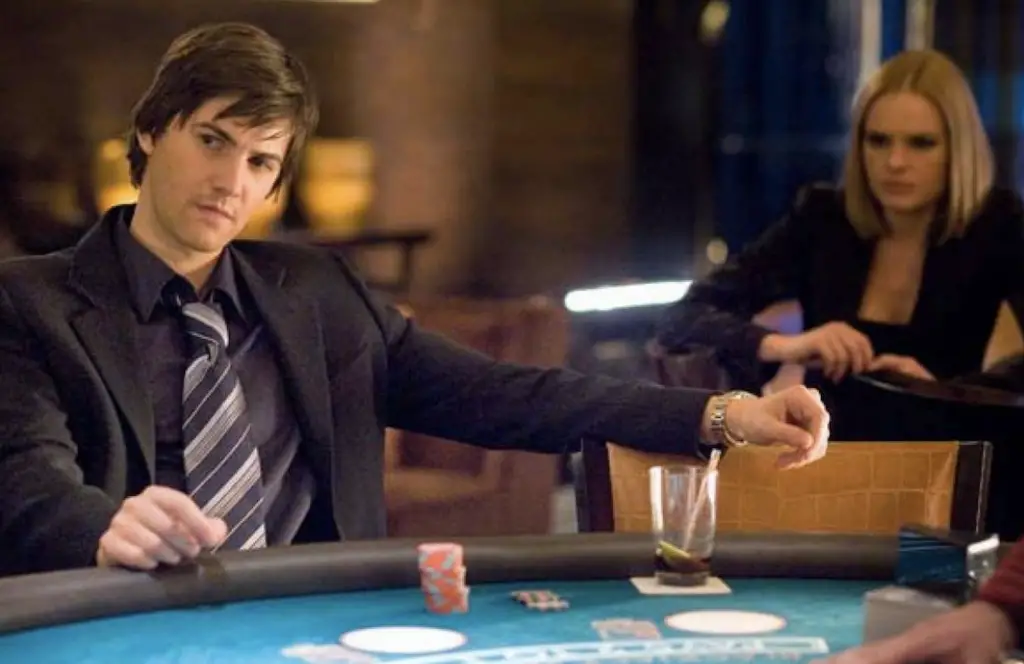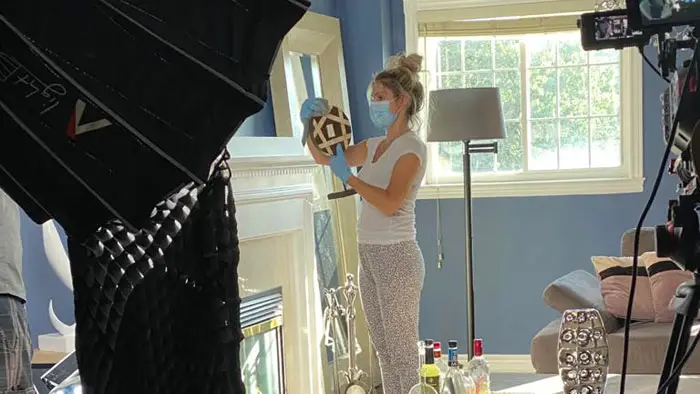
BOOTLEG FILES 175: “Booked for Safekeeping” (1960 educational film designed to help cops deal with mentally disturbed miscreants).
LAST SEEN: Available on several online sites.
AMERICAN HOME VIDEO: None.
REASON FOR DISAPPEARANCE: Nontheatrical short that was never intended for commercial exhibition.
CHANCES OF SEEING A DVD RELEASE: Ain’t gonna happen.
Nobody ever said law enforcement was an easy job, particularly when it comes to dealing with mentally disturbed people. Since the average police officer does not have a degree in psychology, handling situations with emotionally volatile individuals can be more than a little challenging.
That was the driving force behind the 1960 film “Booked for Safekeeping,” which was produced to assist police officers in dealing with the mentally disturbed. Not unlike many educational documentaries of distant eras, the half-hour “Booked for Safekeeping” can be viewed today with more than a few unintentional laughs. Still, it served an important function in its time and is deserving of some respect.
“Booked for Safekeeping” was produced by the Louisiana Association for Mental Health and the National Institute of Mental Health, and it was shot entirely on location in New Orleans. Of course, New Orleans is no one’s idea of a typical American city and the film has this wonderfully weird vibe associated with the Big Easy: the off-beat and picturesque streets, the jaw-breaking po’ boy sandwiches (one of the cops is seen consuming this monster lunch during his patrol), and the Bayou-flavored accents that turns ordinary sentences into rainbows of Southern-fried charm (as one bystander proclaims in the film: “Dat man sho is craaaazy!”).
Perhaps to save money on the production, the New Orleans police officers were recruited to be the actors in the movie, playing both themselves and the mentally ill miscreants. It appears that some of their mothers, wives and girlfriends were recruited to play the various distressed damsels in the film who wait impatiently for constabulary assistance in moments of crisis. Despite occasional fluffed lines (this seems to be a one-take movie) and fight scenes that are much too tame to be believed (the cops obviously weren’t going to hurt each other for the camera), the non-professional cast does a credible job.
“Booked for Safekeeping” follows the police in their encounters with a wide variety of mentally ill people. Some of their encounters are benign: an elderly lady in the early stages of dementia creates a minor ruckus in a fruit market, but the arrival of a beefy cop turns her kittenish and she happily allows the hulking officer to escort her home. Some encounters are thoroughly mundane: one officer visits a poor black neighborhood and talks with a mother who comments sadly on the stunted development of her mentally retarded teenage son (the young man is seen riding a sawhorse as if it was a genuine equine). That sequence is the only one in this production to feature African-Americans (all of the cops in the film are white).
But things get a bit more serious after that. The cops respond to a late night attempted suicide by fishing a bridge jumper from the Mississippi River. Then they go to an apartment building where one deranged tenant has been threatening his spouse with a knife. Finally, an officer investigates what appears to be a comatose man found lying on the floor of his home. The man, however, springs violently to life and begins wrestling the officer for his weapon.
Clearly, “Booked for Safekeeping” was a well-intended effort. Back in 1960, mental health issues still carried significant misperceptions with the general public – and one would assume that police departments were not progressive in considering the humanity and genuine angst of those unbalanced individuals they came in contact with. To its credit, the film attempts to present mental illness with a degree of sympathy that few people of that era would associate with the subject.
Yet viewed today, “Booked for Safekeeping” nonetheless bubbles with some very strange notions of standard police procedure (especially is conjunction with the New Orleans Police Department, who never had a reputation for holistic operations). For starters, this may be the only educational documentary that actually advocates police officers to encourage their arrested charges to smoke. At one point, a man in custody has his handcuffs adjusted from a rear-locking position to a front-locking position to help facilitate his handling of a cigarette. One officer, peering through the bars of the holding cell, tells the locked-up man: “Don’t forget, it you want another one just call.” Obviously, nothing goes better with mental illness than lung cancer.
The film also has an interesting approach to handcuffs. The narrator sternly warns the viewers: “Whenever possible, they should NOT be used.” Gun usage is also not advised, even when the mentally ill person is carrying his own weapon. “Put that gun away!” yells a sergeant to a rookie when facing a dangerous man – and the cops wind up subduing that man by jumping on him with oversized pillows (that has to be seen to be believed).
The main sequence in the film, however, involves the deranged husband in the apartment building. A veteran officer, realizing the situation is serious, asks his junior officer to get reinforcements. The young cop exits and returns, after a considerable period, with two elderly officers who seem well past the age for mandatory retirement. The old cops don’t really do very much, as the veteran officer is able to negotiate with the unbalanced man. He calms the man by stating, in his heavy Louisiana drawl, “We’re tryin’ to help, not tryin’ to hoit ya!” Eventually, the cop ends the standoff by roughly sliding a chair into the deranged man’s knees – which, of course, hoit like hell.
“Booked for Safekeeping” was directed by George C. Stoney, a well-respected figure in nontheatrical documentary filmmaking. He helmed 40 movies, including the 1953 midwifery instructional offering “All My Babies” and the 1955 syphilis prevention classic “The Invader.” He also taught filmmaking at New York University and was one of the pioneering advocates for the development of public access television.
There was no copyright issued for “Booked for Safekeeping,” as it was intended for free distribution to all interested mental health professionals and police departments. This, of course, ensured the film would be a public domain title – which later allowed enterprising bootleggers to dupe prints for their own commercial purposes. Today, the film can be found on several DVD collections featuring police-oriented educational films and at various Net-based video sites.
For today’s viewers, who primarily know police work from TV shows like “COPS” or the various “Law and Order” and “CSI” franchises, “Booked for Safekeeping” provides an amusing look back in time. 10-4, you wacky ol’ cops!
IMPORTANT NOTICE: The unauthorized duplication and distribution of copyright-protected material is not widely appreciated by the entertainment industry, and on occasion law enforcement personnel help boost their arrest quotas by collaring cheery cinephiles engaged in such activities. So if you are going to copy and sell bootleg videos, a word to the wise: don’t get caught. The purchase and ownership of bootleg videos, however, is perfectly legal and we think that’s just peachy! This column was brought to you by Phil Hall, a contributing editor at Film Threat and the man who knows where to get the good stuff…on video, that is.
Discuss The Bootleg Files in Back Talk>>>

